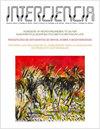学习方法、动机和自律对学生在线学习回溯性认知的影响
IF 0.4
4区 综合性期刊
Q4 ECOLOGY
引用次数: 0
摘要
本文首次从回顾性的角度考察了学习风格、动机和自律之间的关系,这些因素影响着大学生对在线学习的看法。从2019年到2022年,学生们一直在重新思考教与学的组成部分。此外,从学习者的角度来看,他们所面临的社会、文化和技术变化,包括学习环境和学习方法的重大变化,都加剧了学习者重新考虑时间规划的需要。本研究以1928名就读于几所学术机构的学生为研究对象。我们采用混合方法设计探索性研究,结合定性和定量分析,开发拟议的在线教学建议(SOTR)模型。我们使用结构方程模型(SEM)来计算拟合优度。研究结果表明,在自律方面,在家的干扰和干扰阻碍了学生的在线学习,但它们并没有降低学生对在线教学质量的评价。我们可以假设学生学习如何将在线教学融入他们的日常生活中,并且随着学生坚持学业,短期的劣势可能会成为一种积极的经历。此外,网络教学需要学生的自律,这对感知教学质量也没有影响。然而,在线教学后,学生的积极性下降,自律也下降,从而降低了对教学质量的感知。学生们担心,由于在线学习,他们与同班同学的社交互动减少了,但这种减少并不会对他们的学习过程产生不利影响。本研究的发现可能有助于改善使用数字工具学习的学生的教与学,特别是在正面教学仍然相关且重要的学术机构。研究结果支持了学生的学习方法、动机和自律之间关系的重要性,这是影响学生对在线学习看法的因素。问题是,学术导师是否应该增强学生的动机,以提高他们的自律技能,或者这些因素是否只与学生有关。本文章由计算机程序翻译,如有差异,请以英文原文为准。
The Effects of Learning Method, Motivation, and Self-Discipline on Students’ Retrospective Perceptions of Online Learning
This article examines, for the first time, the relationship between learning style, motivation, and self-discipline, as factors that affect tertiary students’ perceptions of online learning, from a retrospective perspective. The period between 2019 and 2022 was and remains one in which students are rethinking the components of teaching and learning. In addition, from the learners’ perspective, social, cultural, and technological changes to which they were subject, including substantial changes to learning environments and learning methods, heightened learners’ need to reconsider time planning. This study is based on 1,928 students enrolled in several academic institutions. We used a mixed-methods design for this exploratory research, incorporating qualitative and quantitative analysis, to develop the proposed Online Teaching Recommendations (SOTR) model. We used Structural Equation Modeling (SEM) for goodness-of-fit. Findings indicate that with respect to self-discipline, distractions and interruptions at home hinder students’ online learning, but they do not lower students’ assessments of the quality of online teaching. We may assume that students learn how to integrate online teaching in their everyday lives, and the short-term disadvantage may become a positive experience as students persist in their academic studies. Moreover, online teaching demands students’ self-discipline, which also has no effect on perceived teaching quality. However, students’ motivation declines following online teaching, s does self-discipline, which lowers perceived teaching quality. Students are concerned by the decline in social interactions with their class mates, caused by online learning, but this decline does not adversely affect their learning process. Findings of this study may contribute to improving teaching and learning for students who use digital tools for learning, especially in academic institutions where frontal instruction remains relevant and significant. Findings support the importance of the relationship between students’ learning methods, motivation, and self-discipline, which are factors that affect students’ perceptions of online learning. The question is whether academic instructors should enhance students’ motivation to improve their self-discipline skills or whether these factors are related exclusively to students.
求助全文
通过发布文献求助,成功后即可免费获取论文全文。
去求助
来源期刊

Interciencia
综合性期刊-生态学
CiteScore
0.80
自引率
25.00%
发文量
1
审稿时长
4-8 weeks
期刊介绍:
Interciencia is the monthly multidisciplinary publication of the INTERCIENCIA Association. It is dedicated to stimulate scientific research, its humanitarian use and the study of its social context, specially in Latin America and the Caribbean and to promote communication between the scientific and technological communities of the Americas.
Interciencia has been published uninterruptedly since 1976. Its Founding Director, Marcel Roche (endocrinologist and sociologist of science) was editor until 2008, and thereafter Miguel Laufer (neurobiologist) has been in charge. It has been included since 1978 in the Science Citation Index and other international indexes, and since 2008 it maintains an open access electronic version with material from 2005 onwards.
The priority areas of the journal, without exclusion of other areas, are Agronomy, Arid Lands, Food and Nutrition, Biotechnology, Ecology and Environment, Energy, Innovation and Technology Transfer, Marine Resources, Non-renewable Resources, Science Education, Science Policy, Study and Sociology of Science, and Tropical Forests.
Interciencia publishes in Spanish, Portuguese and English research and review articles, communications and essays, all of which are subjected to peer review. Additionally, it includes non-refereed sections such as Editorial, Letters to the Editor, Open Town Hall, Book Reviews and Upcoming Events.
All the material submitted to the journal for publication and accepted by the Editorial Committee in view of its quality and pertinence is subjected to review by peer specialists in the corresponding fields of knowledge. Neither the INTERCIENCIA Association, nor the journal or the institutions to which the authors belong carry responsibility for the contents. Signing authors are responsible for the material published under their names.
 求助内容:
求助内容: 应助结果提醒方式:
应助结果提醒方式:


